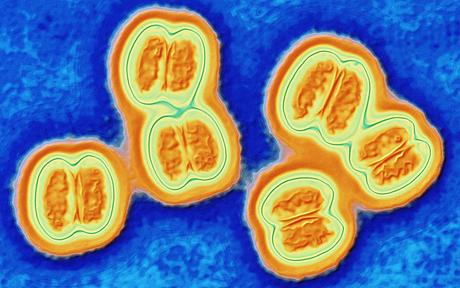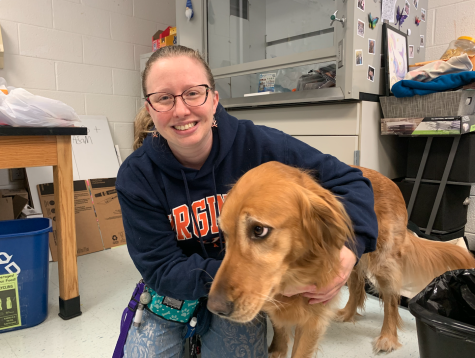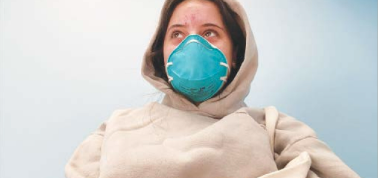The dangers of the quick striking meningitis B

Bacterial meningitis begins as Meningococcal disease, which is a serious illness caused by a type of bacteria called Neisseria meningitidis. It can lead to meningitis (infection of the lining of the brain and spinal cord) and infections of the blood. Leading symptoms include headache, sudden fever and stiff neck.
A recent commercial promoting the meningitis B vaccine depicts an animated college boy leaving home without being properly vaccinated. The images of the commercial are not the focal point whereas the facts provided within are.
The commercial states that meningitis B progresses quickly and can be fatal, even with 24 hours. It also states that although meningitis B is uncommon, 1 in 10 infected will die. The commercial heads warning to the notion that many teens are not vaccinated, stressing the importance of this vaccination before college. The thought of contracting meningitis B is scary to any parent or teen due to the deadly effects it has.
Many wonder, where does meningitis B come from? Meningitis is first Meningococcal disease which is a serious illness caused by a type of bacteria called Neisseria meningitis. It can lead to meningitis (infection of the lining of the brain and spinal cord) and infections of the blood. There are at least 12 types of N. meningitis, called “serogroups.” Serogroups A, B, C, W, and Y cause most meningococcal disease.
There are also two vaccinations that are recommended for teens to get before college. One vaccine is meningitis vaccine ACWY which is recommended for 12-14 year olds plus a booster shot for 16 year olds. Chances are that you have received vaccine ACWY. The other vaccine is meningitis vaccine B which is much less common among teens and adults due to the fact that the vaccine was made in late 2014. The vaccine is suggested for ages 16-23 but preferred for 16-18 year olds.
Who is at risk?
According to the Centers for Disease Control and Prevention, anyone can get meningitis but certain people are at increased risk. One of the groups of people that are at an increased risk are adolescents and young adults 16 through 23 years old. Due to the increased risk, it is very important that rising college freshmen and 16 year olds are immunized.
How is it spread?
The bacteria that cause meningitis live within the nose and throat. The bacteria can be spread easily through behaviors such as coughing and sneezing, sharing drinks and eating utensils, kissing and living in close quarters. The meningitis bacteria can be spread easily and fast so it is important to be cautious if you have not been vaccinated.
What are the symptoms?
Early symptoms of meningitis may appear mild, similar to those of a cold or flu. However, the symptoms of meningitis can progress rapidly. Symptoms include headache, sudden fever and stiff neck.
It is very important that students receive their proper vaccinations to reduce the risk and possible spread of meningitis.

Manny Precht is a senior and the current Co-Editor in Chief of The A-Blast. It is his second year on staff where he was previously the Health Editor. In...












